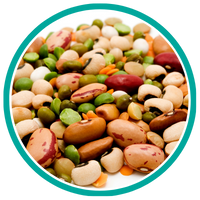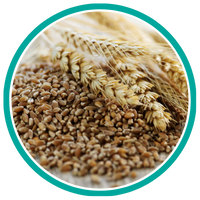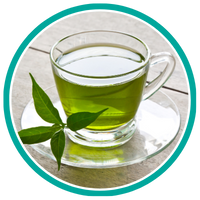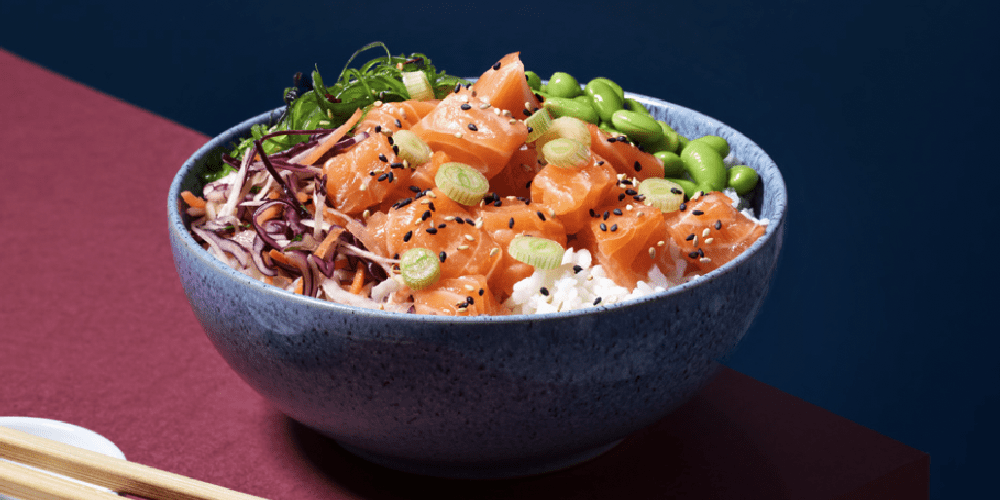Recent years have seen significant interest in the idea of longevity – improving the quality of your later-in-life years. While strength and movement have a big part to play in this – it could be argued that food plays an even bigger part. Combine the right movement and the right food, and science tells us you’re very likely to live a longer, active life.
The trouble is, diet fads come and go – especially online. What’s presented as absolute fact today can quickly turn out to be a useless trend within a few months.
In this blog, we’ll take an in-depth look at the science behind nutrition for longevity. We’ll also look at why a sustainable ‘good’ way of eating is almost always going to be better than a ‘perfect’ diet that has you looking at your plate full of steamed broccoli with despair.
Diet and Longevity: A Powerful Connection
We often think of longevity as largely down to genetics, but in reality, lifestyle choices actually take centre stage. Current estimates suggest that only about 25% of your lifespan is determined by your DNA. The rest? It’s influenced by the way you live – and that includes your diet.

One major 2023 study published in Nature Food used UK Biobank data to model how dietary shifts could impact life expectancy. The results were eye-opening. Swapping an unhealthy diet for a longevity-focused one could add up to 10 years to your life expectancy. Even switching from an average (“not terrible, but not ideal”) diet to the Eatwell Guide’s recommendations added nearly 9 years for men and women in their 40s.
The foods that apparently made the biggest difference? Whole grains, nuts, fruits, legumes, and significantly less processed meat and sugary drinks.
A Quick Note About Protein
You’ll notice that the list of foods just mentioned doesn’t mention major sources of protein. There are modest amounts of protein in some nuts and legumes – but modest is the key word here. In fact, the mention of processed meats in the ‘what to eat less of’ category could lead you to believe that protein doesn’t play a significant part in longevity – but this is not the case.
When it comes to talking about protein, we delve into a slight more nuanced (but very important) part of the conversation about longevity.
For now, let’s look at the science-backed studies that talk purely about nutrition and longevity. Then, we’ll explain why the picture changes a little when you add exercise into the longevity equation.
The Best For Longevity: What to Eat More Of
So, what does science tell us we should be looking out for when it comes to eating for longevity?

1. Fruits and Vegetables
Let’s start with the basics. Multiple large-scale studies have found that eating at least five servings of fruit and veg per day lowers the risk of death from all causes. Go beyond that and the benefits level off, so it’s more about consistency than excess.
These foods are rich in fibre, antioxidants, vitamins and minerals—all crucial for keeping your heart, brain and gut in good working order. They also help manage inflammation, one of the underlying drivers of many chronic diseases.

2. Nuts and Legumes
Nuts are small but mighty. Packed with heart-healthy fats, plant-based protein, and a wealth of micronutrients, they’ve been linked to reduced risk of heart disease, type 2 diabetes, and even some cancers. One study even found that higher nut consumption improved markers for metabolic syndrome, including waist circumference and blood pressure.
As for legumes (think beans, lentils, chickpeas), they’re staples in many of the world’s longest-living populations – including the Blue Zones. They’re rich in fibre, help stabilise blood sugar, and are excellent plant-based protein sources.

3. Whole Grains
Unlike their refined cousins, whole grains contain all parts of the grain – including the bran and germ. That means more fibre, more nutrients, and better blood sugar control. Studies consistently show that diets higher in whole grains are linked to a lower risk of heart disease and premature death.
Oats, brown rice, barley, and whole grain bread are excellent options. Just watch for misleading labels – “multi-grain” doesn’t always mean whole grain.

4. Healthy Fats
Olive oil, avocados, seeds, and fatty fish like salmon and sardines all offer the kind of fats your body loves. These fats reduce inflammation and support everything from brain health to hormone production.
Fatty fish, in particular, provide omega-3 fatty acids, which have been shown to lower the risk of cardiovascular disease and cognitive decline.

5. Green and Black Tea (and Coffee)
Green tea, in particular, is a polyphenol powerhouse. Regular drinkers tend to have lower rates of heart disease, stroke and certain cancers. A 2016 review found that higher green tea intake was associated with a reduced risk of death from all causes.
And while we’re here: coffee drinkers, we’ve got good news. Up to three to five cups a day may also lower mortality risk. Just be mindful of what you add to it since caramel frappes topped with whipped cream don’t count (but don’t be afraid of the occasional treat).
Less Is More: What to Eat Less Of
Having covered the nutritional must-haves, it’s also worth taking a look at the foodstuffs and ingredients that crop up in studies showing a correlation with reduced length and quality of life:

1. Processed and Fatty Red Meats
Reducing your consumption of certain meat, especially fatty red and processed meats, is a consistent theme in longevity research. The gains in life expectancy are found when people shift away from processed meat (bacon, sausages, deli meats) in favour of leaner proteins.

2. Added Sugars
No surprises here. High intake of added sugars is linked to obesity, type 2 diabetes, heart disease and, you guessed it, a shorter life. Sugar-sweetened drinks like fizzy sodas and energy drinks are among the biggest culprits.
That said, the goal isn’t complete deprivation. A balanced approach means room for the occasional treat – it’s just worth trying to make sure a family-size bar of Fruit and Nut after dinner doesn’t become the norm.

3. Ultra-Processed Foods
Ultra-processed foods (UPFs) are products that contain ingredients rarely found in home kitchens (think emulsifiers, artificial colours, preservatives). A growing body of evidence links high intake of ultra-processed foods with increased risk of mortality.
They’re often energy-dense (aka high calorie), nutrient-poor, and disturbingly easy to overeat. Try to keep them as an occasional indulgence, not a daily staple.
That said, there is a caveat here. There are types of UPFs do not correlate with a reduced life/health span. Some breads and breakfast cereals, especially those fortified with additional vitamins, are considered UPFs but can actually benefit health. Generally speaking though, around 90% of UPFs are in the ‘undesirable’ category in terms of longevity.
Important: Why Protein Matters For Longevity
As our blog title promised, this is a look at the science behind nutrition and longevity. However, that’s slightly reductive when it comes to longevity as a whole. Countless studies cite the importance of exercise, and, in particular, strength (and its impact on balance and mobility), when it comes to living a longer, healthier life.
So, what happens if you stop thinking about simply nutrition for longevity – and start thinking about exercise and nutrition for longevity? This is where a person’s healthspan significantly improves.
Protein matters in this regard because it supports the muscle development and use required for the kind of exercise that has the biggest impact on longevity. Now, we’re not talking about ‘bulking up’ and winning Mr or Ms Universe competitions here – we’re talking about the kind of toned muscle that keeps you strong and flexible despite the reduction in muscle mass that occurs naturally for people as they progress beyond their 30s.

The exercise required to develop and maintain this kind of muscle is arguably the easiest to build into your life. There are no super-sweaty gym sessions required – and there’s certainly no need to spend dozens of hours in the gym each week. In fact, 2-3 hours of strength training with a personal trainer is usually the sweet spot for most people.
Without adequate protein, you simply will not get the longevity benefits that strength training offers. And, some protein sources are far more practical than others.
Example: Legumes vs Unprocessed Meat
Let’s say, for this example, that your personal trainer has recommended a goal of consuming 150g of protein to support your longevity goal.
If your plan was to source this from legumes and nuts, you’d be eating an absolutely colossal amount. Cashews, for instance, contain 18g of protein per 100g of nuts. Therefore, you’d need around 850g of cashews – which, aside from the possible gut issues and cost involved, contains around 4,800 calories and 366g of fat, which would contribute to significant weight gain very quickly.
On the other hand, chicken breast contains 31g of protein per 100g. As such, you’d need around 480g of chicken (roughly two breasts) to get the same amount of protein. That would total 800 calories and 17g of fat.
Of course, no one really plans to eat kilos upon kilos of cashews each week – this is really just an illustration to show how impractical and counter-productive it would be to source longevity-boosting amounts of protein from the sources that science appears to tell us are the best. The reality is, a sensible amount of good quality meat (think unprocessed, organic, high-welfare) is going to support an exercise- and nutrition-supported longevity goal far better than an idealistic plant-based protein diet.
This is not to say that alternative diets can’t work – but for most people, meat and dairy represent the most practical way to work towards a longer, healthier life. For those who prefer plant-based diets, it is possible to meet protein needs—though it may require more planning, supplementation (e.g., with protein powders), and careful food pairing.
A Comparison of Protein Sources

One Size Doesn’t Fit All: Personalisation Matters
While there are clear patterns in the science, there’s no one-size-fits-all diet for longevity. As Professor Frank Hu from Harvard points out, people can mix and match elements of the Mediterranean, Okinawan or plant-based diets to suit their tastes and cultures.
This flexibility is key for long-term adherence. The best diet is the one you enjoy enough to stick with. At Fitness Lab, we take this to heart when crafting bespoke nutrition strategies with clients. There’s room for variety and individual preference, so long as the foundation is nutrient-rich, whole-food based eating.
And don’t underestimate the importance of enjoying meals with others. Social connection is another factor tied to longevity, and shared meals can nourish more than just your body.
Are There Any Absolute No-No Foods?
So, does a longevity diet mean you’ll never eat a pizza or tub of ice-cream again? For us, we’d say a firm no to this.
Food is such an important part of many people’s lives – so, factoring in a pizza night here and there or some hot cross buns (a Fitness Lab favourite) shouldn’t be seen as something that’s going to shorten your life.

Instead, it’s useful to think about balance – and as long as you’re tipping the scales towards the types of whole foods that are proven to extend the length and quality of your life, you’re on a good, sustainable path.
The Takeaway: Eat Well, Live Well
Eating for longevity isn’t about perfection or restriction. It’s about consistently prioritising foods that support your body’s systems, protect against disease, and keep you active and thriving.
As a quick-glance recap:
- Prioritise whole food: fruits, vegetables, whole grains, nuts, legumes, and unprocessed meat.
- Look for healthy fats where possible
- Limit processed meats, sugary drinks and ultra-processed snacks
- Drink green tea (and yes, normal tea and coffee counts too)
- Be flexible and find a pattern you enjoy
And most importantly? Stick with it. The biggest gains in life expectancy come from sustained and realistic change, not flash-in-the-pan diets that are painful to stick to.
If you’re ready to make your nutrition work harder for you, consider booking a consultation with the Fitness Lab team. We’ll help you create a personalised strategy that fits your goals, preferences, and lifestyle—so you can live well, for longer.

